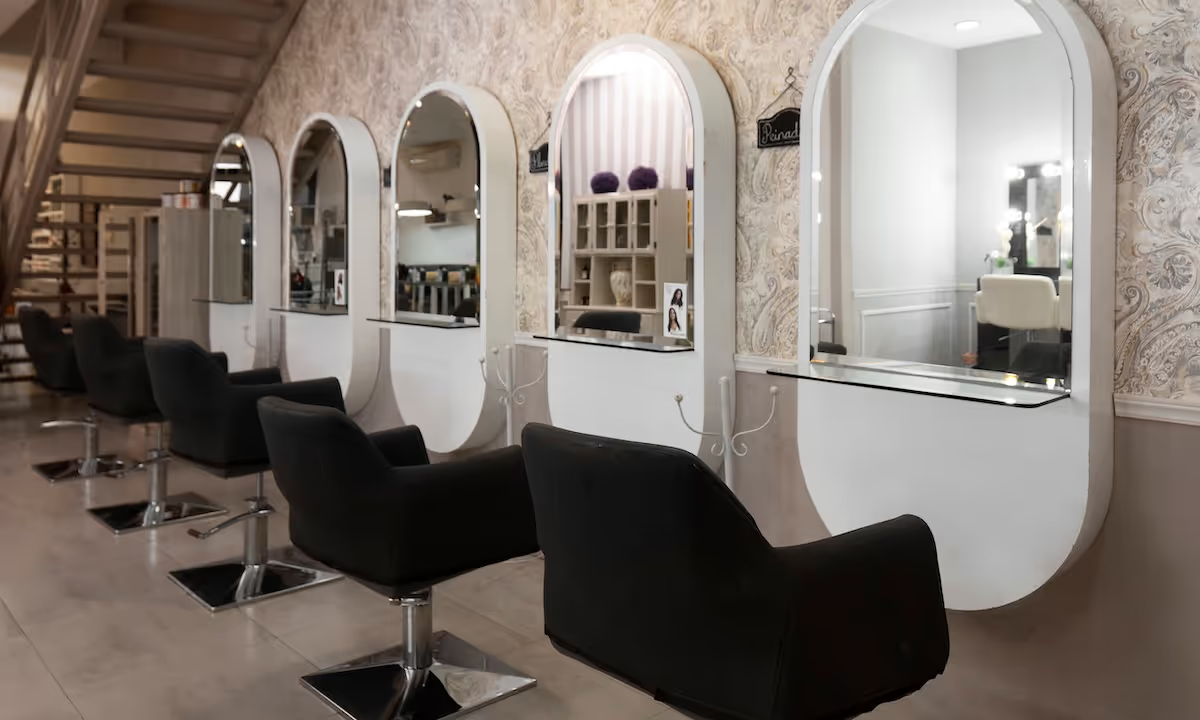
Managing a beauty salon or spa can be both exciting and overwhelming. Salon owners know the drill. The salon operations, business and financial planning, staff and client management, become no easy work as the salon starts running and bringing in more and more customers.
While all areas play a significant role in the overall growth and progress of a beauty salon, one deserves special attention, the financial planning. And no wonder it does, because how could any business start or grow without a proper financial system?
It may sound scary at first, but with the right planning, tools, and strategies, managing your salon finances doesn’t have to be stressful. In fact, one detail can make a huge difference in reducing financial pressure and boosting profits: salon tax deductions.
Salon tax write-offs can save you hundreds, even thousands of dollars each year. To help you get started, here’s a breakdown of the most common tax deductions that apply to salons and professionals in the beauty industry.

Your salon space is one of your biggest investments, and thankfully, one of the most valuable deductions. Costs like rent, electricity, heating, water, gas, phone, and internet are typically tax deductible. Even improvements to your rental space may qualify.
It’s no news that beauty salons require a wide range of equipment and product supplies, depending on the diversity of the services they offer as well. From shampoo bowls and manicure tables to shampoos, conditioners, and gels, both salon equipment and professional beauty products are considered deductible business expenses.
Working in a salon environment can be challenging. Therefore keeping your staff and space clean becomes essential. Protective uniforms, aprons, gloves, and other safety gear are fully deductible.
Speaking of the salon environment, let’s not forget the waiting area. What’s better than a cozy customer corner, providing refreshments, all to be enjoyed while wandering through the pages of a beauty magazine? Sounds like a good start to a salon visit to us.
Good news is snacks, beverages, and even magazine subscriptions in the waiting area may qualify as deductible client experience expenses. Another little win, right?
Moving on with the warm client experience your salon is trying to offer, let’s talk about music. What’s a fresh haircut without some upbeat trims or a little happy ‘new hair color’ mirror dance? Whether you’re paying a licensing fee or subscribing to a streaming platform to be able to play music in your salon, those costs can be also written off. We’ve heard good things about Soundtrack, if you’re looking for a platform that provides the music license your salon needs with just a simple subscription.
Salon management software isn’t just a convenience, it’s also a tax-deductible business expense. The right software can save time, streamline operations, and reduce stress. For example, Goldie offers an all-in-one solution that helps beauty professionals manage appointments, clients, and marketing. Even better, its built-in reports feature makes it simple to track income, expenses, and taxes throughout the year. That means you’re more organized, more efficient, and fully prepared when tax season arrives.

Offering a good customer experience is very important. And it’s what will propel a strong word of mouth marketing strategy. But we know that is not enough anymore. Therefore promoting and advertising your salon through all possible channels is essential for growth, and those expenses are deductible too. Whether it’s online ads, flyers, or social media promotions, marketing investments can be written off. Goldie also includes marketing tools that make it easier to attract new clients and grow your beauty brand.
As a beauty salon owner, you should be prepared and covered for any risks that could affect your salon. Business liability insurance, property insurance, and other policies not only protect your business but also qualify as tax deductions, so consider investing in them.

Wages, bonuses, tips, payroll taxes, and health insurance are all deductible. Proper tracking is key, and there are apps that help you track and generate complete employee income and expense reports for stress-free filling.
Offering high-quality services in the beauty industry requires skilled professionals. Investing in your hairstylists, barbers, nail technicians, and estheticians pays off in happy clients and business growth. Training costs, certifications, workshops, and conferences are deductible. Another little win checked.
Don’t forget about the help behind the scenes. Accountants, consultants, and tax professionals are deductible expenses that can keep your salon running smoothly. Don’t be afraid to hire them.
You’ve probably already stumbled on one of the biggest tax questions in the beauty industry: what’s the difference between booth renter tax deductions and employee tax deductions?
And while there are some key differences between the two, we want to start with the major one. If you’re renting a booth in a beauty salon, know you’re considered a self-employed independent contractor. This brings a huge difference in the tax management.
How?
• In the case of employees, salon owners withhold taxes (federal, state, Social Security, Medicare) from employee paychecks. Employees receive a W-2 at the end of the year summarizing income and taxes withheld. This translates to almost no responsibility of tax management involved for salon employees.
• As for booth renters, since they’re considered self-employed independent contractors, they become fully responsible for calculating and paying their own taxes, including income and self-employment tax. Instead of a W-2, they’ll have to report earnings themselves.
Now that we’ve touched on the tax deduction differences, it’s time we talked about the similarities as well.

If you’re renting a booth, you’re considered self-employed. That means you can deduct a wide range of business expenses that apply to salons as well, including:
• Booth rental fees – full cost of your booth rental
• Home office expenses – if you have a business use of your home, too
• Booth equipment and beauty products – involves all items and products you need for the services you offer
• Protective clothing and gear – necessary for ensuring yourself a safe and clean working environment
• Software subscriptions
• Marketing and advertising costs – includes any investment you need to make in order to promote and grow yourself as a beauty professional
• Education and training workshops – necessary for your constant professional development and growth
• Phone and internet services used for work – if applicable
To actually benefit from tax deductions, you need to keep detailed and clear records of the expenses for all of the above, such as receipts, invoices, bank statements. When filling taxes, these expenses are subtracted from your total income, which lowers the amount of income you’re taxed on. In other words, the better you track and document your costs, the more effectively you can reduce your taxable income.
Choosing between being a salon employee or booth renter depends on your goals and how much responsibility you want to manage.
• Employees benefit from more stability and fewer financial responsibilities.
• Booth renters have greater independence but also more tax obligations.
Neither option is “better”. It depends on your career vision. Do you want to rely on the salon’s potential to be able to grow, or do you prefer to grow individually and rely on your own potential? See where you want and need more freedom, the answer shall be there.
However, we do suggest you consult with a tax professional for guidance tailored to your specific situation. A good research will bring a safer and better plan to start off with, as well as higher chances for your career to expand and show progress over time.
At the end of the day, taxes don’t have to be overwhelming. The key for salon owners and beauty professionals is to stay organized, track expenses carefully and take advantage of every deduction available. From rent and supplies to education, marketing and even music licensing, these write-offs can make a significant difference in your bottom line in 2026. And with a tool like Goldie, that manages your financial reports, tax season can become less stressful, so that you can focus on what you do best: helping clients look and feel amazing.
Think of tax planning as another part of your business strategy: just like providing great client experiences, it keeps your salon thriving year after year.
